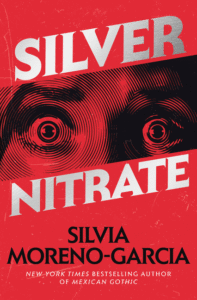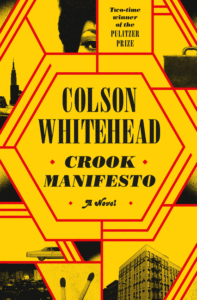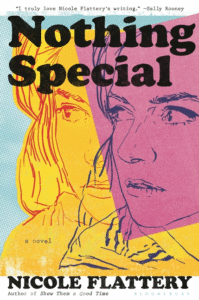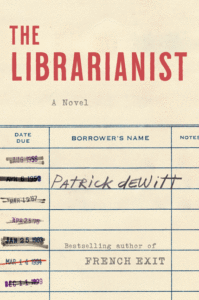
July's Best Reviewed Fiction
Featuring New Titles by Colson Whitehead, Patrick deWitt, Silvia Moreno-Garcia and More

Colson Whitehead’s Crook Manifesto, Patrick deWitt’s The Librarianist, and Silvia Moreno-Garcia’s Silver Nitrate all feature among the best reviewed fiction titles of the month.
Brought to you by Book Marks, Lit Hub’s “Rotten Tomatoes for books.”
*
1. Crook Manifesto by Colson Whitehead
(Doubleday)
13 Rave • 8 Positive • 4 Mixed • 1 Pan
Read an interview with Colson Whitehead here
“Both deceptively substantive and sneakily funny, a wise journey through Harlem days and nights as lived by Ray Carney, a conscientious furniture salesman and family man who happens to run a little crooked … Whitehead has always had a sharp instinct for the workings of culture … Whitehead’s New York of the ‘70s is a fully realized universe down to the most meticulous details, from the constant sirens and bodega drug fronts to a sweltering, abandoned biscuit factory … A…reminder, as if we still needed one, that crime fiction can be great literature. These books are as resonant and finely observed as anything Whitehead has written.”
–Chris Vognar (The Los Angeles Times)
2. After the Funeral by Tessa Hadley
(Knopf)
14 Rave • 6 Positive
Read an interview with Tessa Hadley here
“This new collection is a great introduction to her work and for those of us already familiar with Hadley, it’s a great addition. Throughout the collection, Hadley spins out character studies of (mostly) women at odds with themselves, their partners, their families, or life in general … Hadley does a wonderful job of weaving past and present together as the sisters are forced to confront their memories and relationships. And, of course, there are those moments of shining prose … Rife with deft and often beautiful prose, and astute but compassionate characterization, this is a wonderful collection.”
–Yvonne C. Garrett (The Brooklyn Rail)
3. Nothing Special by Nicole Flattery
(Bloomsbury)
4 Rave • 10 Positive • 3 Mixed
Read an excerpt from Nothing Special here
“Exquisitely disorienting … The book is driven by a kind of respiratory imagining, a panting projection that sustains both Mae and the story. She subjects her world and the people who populate it to a ravenous metamorphosing … Some might find the plot’s relentless dissociation a decelerator, but I found it brave and effective: Flattery remains so loyal to the physics of her character’s struggles, to the struggle of storytelling itself, that she is willing to risk allowing the less committed reader to wander off. The point of this novel is not illumination; it’s almost an accident that we get to know Mae at all. Instead the novel captures, in gorgeous prose, the happy and unhappy coincidences that allow us to fall into knowing, those unexpected snags that trip us into ourselves … A revelation that is also distinctly anti-revelation, by a writer whose withholding is as vivid as her bestowing, who shows a story for what it is—something real, something fabricated, something to hide in and from, something special, something so utterly unremarkable it’s the only thing that matters.”
–Alice Carrière (The New York Times Book Review)
4. The Librarianist by Patrick deWitt
(Ecco)
5 Rave • 7 Positive • 5 Mixed
Read an excerpt from The Librarianist here
“I think each Patrick deWitt novel is going to be the one that helps everyone fall in love with his writing, but The Librarianist could finally do it … DeWitt’s dialogue moves with the speed and precision of great conversation and its jokes sneak up on you, more like a wisp of wind on your cheek than someone tapping you on the shoulder to tell you something funny … Bright and entertaining from beginning to end.”
–Chris Hewitt (The Star Tribune)

5. Silver Nitrate by Silvia Moreno-Garcia
(Del Rey)
6 Rave • 4 Positive • 1 Mixed
“True to her method, she succeeds here by knowing when to follow the rules of genre storytelling and when to turn them upside down … Several times in Silver Nitrate, a spirit commands, ‘Follow me into the night.’ While the better part of us hopes Montserrat and her compatriots will refuse, there is simply no resisting the dark spells cast by Moreno-Garcia’s characters—nor those so expertly cast over readers by the author herself.”
–Paula L. Woods (The Los Angeles Times)
Book Marks
Visit Book Marks, Lit Hub's home for book reviews, at https://bookmarks.reviews/ or on social media at @bookmarksreads.























